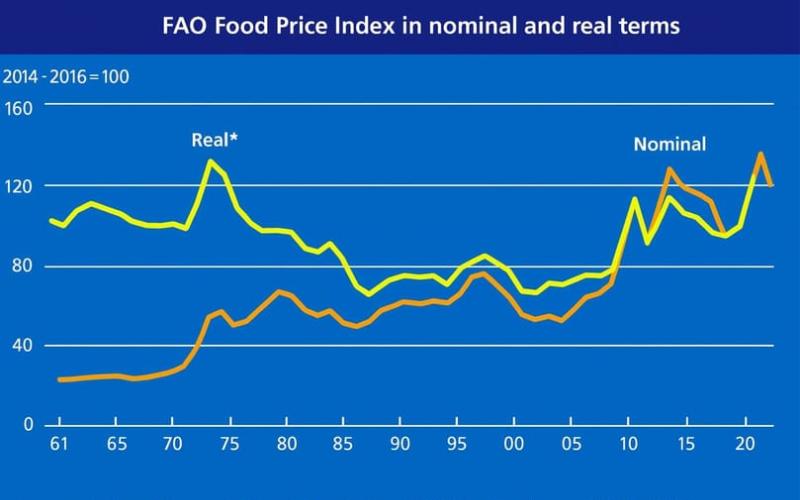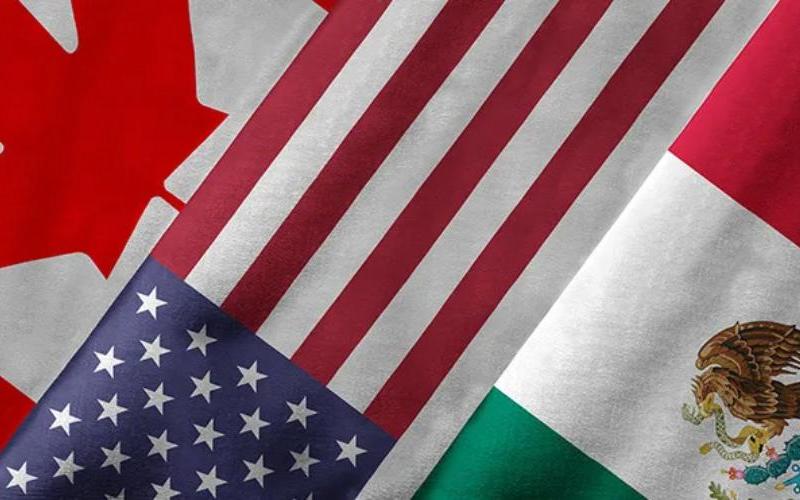Russia Blocks Transit: Veterinary and Phytosanitary Restrictions Threaten Kazakhstan’s Economy
Source: DairyNews.today
On October 21, 2024, it was reported that Russia is introducing strict restrictions on animal movement from European Union countries. Simultaneously, the unresolved issue of phytosanitary standards affecting grain trade has complicated trade relations between Kazakhstan and Russia.

Trade restrictions imposed by Russia over the past month are directly impacting Kazakhstan's livestock industry. Some market participants suggest that these measures may be tied to pressure on Kazakhstan to expedite its accession to BRICS, reports Dairynews.today.
Bluetongue Virus Outbreaks Worsen in Europe
The bluetongue virus (BTV-3), which causes disease in livestock, is worsening across Europe. Outbreaks have already been reported in the United Kingdom, Sweden, Italy, and the Netherlands, prompting Rosselkhoznadzor to ban the movement of animals and other livestock products fr om European Union countries across Russian territory. These restrictions apply to large and small ruminants, camels, bovine, and ovine semen, embryos, and wild ruminant meat.
Europe faces a significant threat fr om bluetongue outbreaks, which have spread to many countries. In Sweden, two outbreaks were recorded on livestock farms in September 2024, with the first occurring at a dairy farm in Uddevalla, wh ere an affected cow showed decreased milk production and periodic lethargy. The second outbreak was in Laholm, where symptoms included fever and diarrhea among livestock.
Italy has also become a hotspot for the epidemic, leading to a sharp increase in restrictions on animal movement. In the Netherlands, where bluetongue was first detected in 2024, farmers have been forced to tighten controls and implement quarantine measures to prevent further spread.
Governments in affected countries, including the UK, have taken steps to lim it the virus's spread. In England, a "restricted access zone" was expanded to cover seven counties following outbreaks in East Yorkshire, Kent, and East Sussex. These measures impose strict limitations on animal movement, significantly affecting livestock farms.
Impact on Kazakhstan’s Livestock Industry
Kazakhstan is actively developing its livestock sector, subsidizing farmers to purchase breeding stock, both domestic and imported. Amid rising demand for breeding livestock, Kazakh farmers increasingly turn to European suppliers, including Denmark and Hungary, where certification and animal breeding standards meet global norms. However, Russian breeders are also beginning to offer Holstein cows, sparking growing interest among Kazakh livestock farmers, especially in border regions.
Currently, market participants report that subsidies for Russian livestock are lower than those for European or Kazakh livestock, partly due to the lack of a comprehensive certification system for breeding stock in Russia.
Restrictions on the transit of animals may affect the import of livestock to Kazakhstan, including large and small ruminants.
Blow to Grain Exports
Since September 23, Rosselkhoznadzor has required Kazakhstan’s Ministry of Agriculture to halt issuing phytosanitary certificates for grain and sunflower exports, straining bilateral trade relations.
During a meeting of the Kazakhstan-Russia Intergovernmental Cooperation Commission in Moscow, the development of transport corridors and grain supplies were discussed. Kazakhstan and Russia agreed to hold bilateral consultations to resolve the situation as quickly as possible.
Amid these developments, Kazakhstan's Deputy Prime Minister Serik Zhumangarin commented on the restrictions and the possibility of a “trade war.” He noted that speculation around a “trade war” is misplaced and that issues related to phytosanitary control will be resolved soon.
Possible Pressure Over BRICS?
In this context, some market participants have suggested that Russia’s phytosanitary restrictions and the livestock movement ban may be part of an effort to pressure Kazakhstan into accelerating its BRICS membership process.
Although Kazakhstan participated in the BRICS summit and supports the organization’s goals, it has no immediate plans to become a full member, reports Orda.kz. Kazakh President Kassym-Jomart Tokayev stated that the country is evaluating the prospects of joining BRICS but does not plan to submit a formal application anytime soon.
According to Orda.kz, some Kazakh experts, such as Anuar Bakhithanov, believe that BRICS membership could open new avenues for Kazakhstan to expand economic cooperation with countries like China and India. However, analysts, including Eduard Poletaev, emphasize that the country prefers a measured approach, weighing the pros and cons of joining international organizations. Kazakhstan maintains a multi-vector foreign policy, strengthening its position in other integration projects, such as the Eurasian Economic Union (EAEU) and the Shanghai Cooperation Organization (SCO).
At present, there is no official confirmation that Russia’s restrictions are directly linked to Kazakhstan’s potential BRICS membership. We will closely monitor developments and provide updates on further changes in trade relations between Kazakhstan and Russia.
Bluetongue Virus Outbreaks Worsen in Europe
The bluetongue virus (BTV-3), which causes disease in livestock, is worsening across Europe. Outbreaks have already been reported in the United Kingdom, Sweden, Italy, and the Netherlands, prompting Rosselkhoznadzor to ban the movement of animals and other livestock products fr om European Union countries across Russian territory. These restrictions apply to large and small ruminants, camels, bovine, and ovine semen, embryos, and wild ruminant meat.
Europe faces a significant threat fr om bluetongue outbreaks, which have spread to many countries. In Sweden, two outbreaks were recorded on livestock farms in September 2024, with the first occurring at a dairy farm in Uddevalla, wh ere an affected cow showed decreased milk production and periodic lethargy. The second outbreak was in Laholm, where symptoms included fever and diarrhea among livestock.
Italy has also become a hotspot for the epidemic, leading to a sharp increase in restrictions on animal movement. In the Netherlands, where bluetongue was first detected in 2024, farmers have been forced to tighten controls and implement quarantine measures to prevent further spread.
Governments in affected countries, including the UK, have taken steps to lim it the virus's spread. In England, a "restricted access zone" was expanded to cover seven counties following outbreaks in East Yorkshire, Kent, and East Sussex. These measures impose strict limitations on animal movement, significantly affecting livestock farms.
Impact on Kazakhstan’s Livestock Industry
Kazakhstan is actively developing its livestock sector, subsidizing farmers to purchase breeding stock, both domestic and imported. Amid rising demand for breeding livestock, Kazakh farmers increasingly turn to European suppliers, including Denmark and Hungary, where certification and animal breeding standards meet global norms. However, Russian breeders are also beginning to offer Holstein cows, sparking growing interest among Kazakh livestock farmers, especially in border regions.
Currently, market participants report that subsidies for Russian livestock are lower than those for European or Kazakh livestock, partly due to the lack of a comprehensive certification system for breeding stock in Russia.
Restrictions on the transit of animals may affect the import of livestock to Kazakhstan, including large and small ruminants.
Blow to Grain Exports
Since September 23, Rosselkhoznadzor has required Kazakhstan’s Ministry of Agriculture to halt issuing phytosanitary certificates for grain and sunflower exports, straining bilateral trade relations.
During a meeting of the Kazakhstan-Russia Intergovernmental Cooperation Commission in Moscow, the development of transport corridors and grain supplies were discussed. Kazakhstan and Russia agreed to hold bilateral consultations to resolve the situation as quickly as possible.
Amid these developments, Kazakhstan's Deputy Prime Minister Serik Zhumangarin commented on the restrictions and the possibility of a “trade war.” He noted that speculation around a “trade war” is misplaced and that issues related to phytosanitary control will be resolved soon.
Possible Pressure Over BRICS?
In this context, some market participants have suggested that Russia’s phytosanitary restrictions and the livestock movement ban may be part of an effort to pressure Kazakhstan into accelerating its BRICS membership process.
Although Kazakhstan participated in the BRICS summit and supports the organization’s goals, it has no immediate plans to become a full member, reports Orda.kz. Kazakh President Kassym-Jomart Tokayev stated that the country is evaluating the prospects of joining BRICS but does not plan to submit a formal application anytime soon.
According to Orda.kz, some Kazakh experts, such as Anuar Bakhithanov, believe that BRICS membership could open new avenues for Kazakhstan to expand economic cooperation with countries like China and India. However, analysts, including Eduard Poletaev, emphasize that the country prefers a measured approach, weighing the pros and cons of joining international organizations. Kazakhstan maintains a multi-vector foreign policy, strengthening its position in other integration projects, such as the Eurasian Economic Union (EAEU) and the Shanghai Cooperation Organization (SCO).
At present, there is no official confirmation that Russia’s restrictions are directly linked to Kazakhstan’s potential BRICS membership. We will closely monitor developments and provide updates on further changes in trade relations between Kazakhstan and Russia.
Key News of the Week











